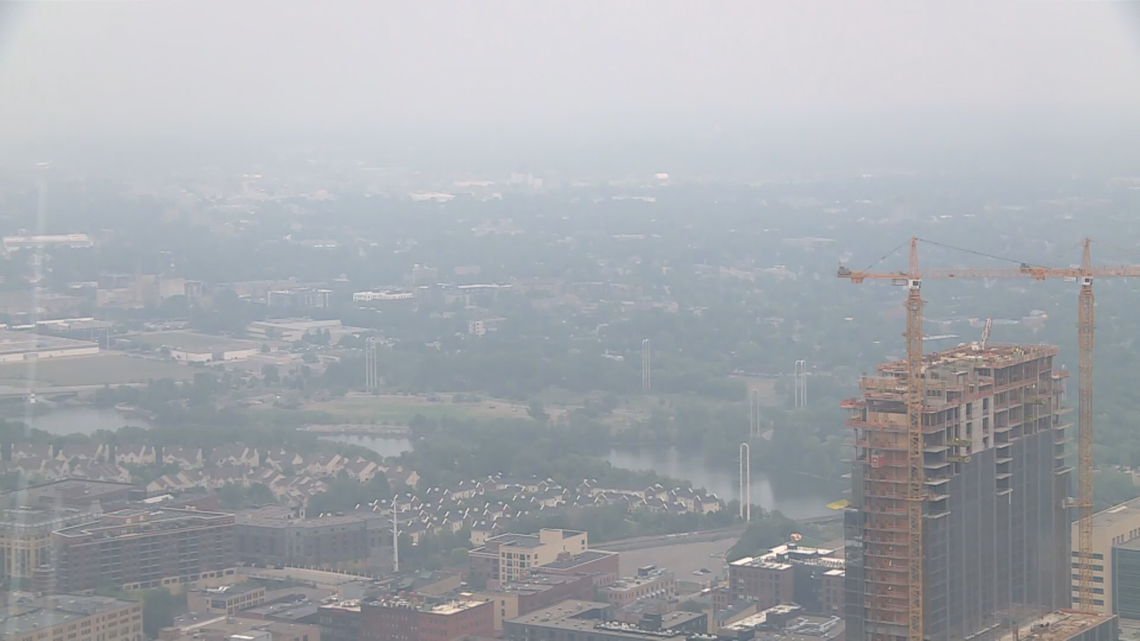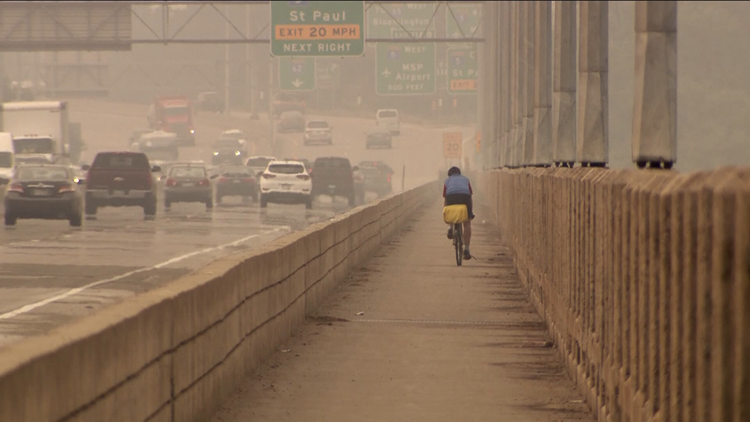EAGAN, Minn. — Dr. Cherie Zachary saw hazy smoke when she looked out her window on Thursday, and knew immediately it was bad news for her patients.
"I thought, 'Oh boy, here we go again,'" she said. "This is not good for anyone who has cardiorespiratory disease."
Zachary, the head of the Allergy Division at Midwest Ear, Nose, & Throat Allergy & Asthma, said her office has been flooded with calls about worsening allergies and requests for asthma medication. The air quality has been poor for several days now across Minnesota due to wildfire smoke, but it took a significant turn on Thursday, with particle levels skyrocketing into the "very unhealthy category" in the Twin Cities.
"Anyone who has asthma, COPD, emphysema, heart disease, that sort of stuff, this is really not the time for you to sit out on the deck and take a walk around the lake," Zachary said. "Definitely avoid a lot of outdoor exposure. Avoid exercise outdoors. Wearing a mask, ironically, is useful. That can actually help. Use AC in your house and in your car; don't sleep with windows open. You just don't need that exposure."
Zachary said that seniors should be especially careful, and that parents should monitor kids with asthma very closely.
"Sometimes, kids are running around, and they don't always pay attention to their symptoms in the way you think they should," she said. "Keep a little more of an eye on them, too."
Shawna Sheppard, a respiratory therapist at Hennepin Healthcare, said the youth sports community should take the air quality seriously.
"If I were a coach or parent of one of those kids, I wouldn't want them outside for more than an hour. It's just so thick," Sheppard said. "I just worry that these kids could get sick and kids with asthma might have a chance of being even sicker."
Sheppard, who has treated countless COVID-19 patients during the pandemic, also said the wildfire smoke poses a significant risk to people who've previously had the virus.


"I'm concerned for them, too, because with COVID we don't know exactly all the long-term effects that it has on these people that had lung damage from COVID," Sheppard said. "We don't know what kind of lung damage has been caused by COVID, with these people with severe lung issues. And this could be really detrimental for their lungs."
The bottom line, experts say, is that you should limit your outdoor exposure until the air quality improves.
But Dr. Zachary cautioned that you can't always judge the air just by looking out the window.
"The days that it looks less smoky, that doesn't necessarily mean that you're out of the woods. People shouldn't just think, 'it's not smoky today, I'm in good shape.' They should really be watching the weather reports to know what the air quality is. Those days can have bad air quality as well," Zachary said. "It's bad today, but, some of the other days that have looked clear were really not that much better."
If you’re worried about the air quality in your area there is a helpful tool you can use.
You can type in your zip code at www.airnow.gov
The website offers a free interactive tool that will show you what the air quality is like your area and it will also offer advice on what kinds of activities are safe to do.



